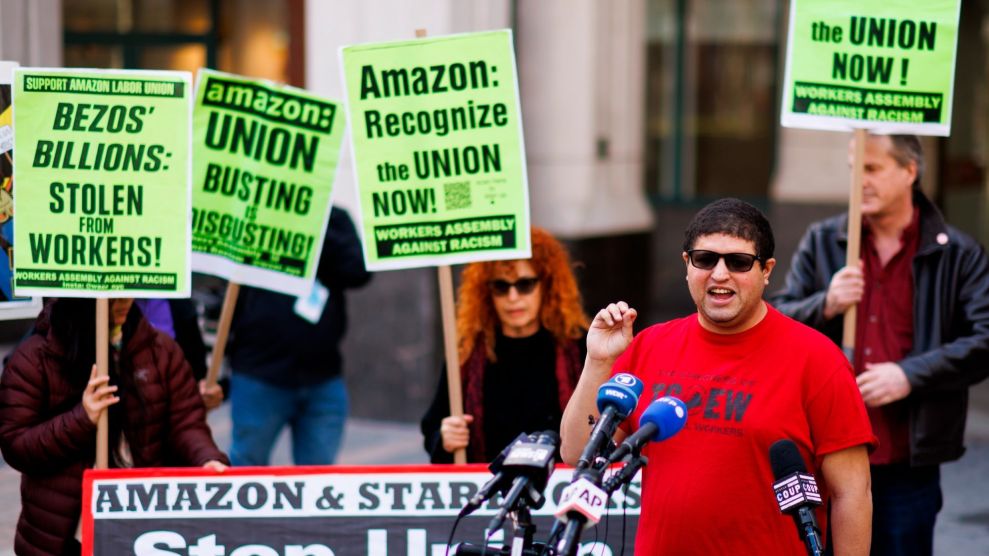
Ignatiev/Getty
Whether you call it “tattleware,” “bossware,” or “surveillance capitalism,” Sen. Bob Casey (D-Pa.) has had enough of exploitative workplace monitoring technologies. Late last week, Casey and a handful of other Senate Democrats introduced the Stop Spying Bosses Act, which would help protect workers from intrusive employer surveillance both on and off the clock.
The legislation would require “timely and public” disclosures by companies about the data they’re collecting on employees, prohibit businesses from using surveillance practices that obstruct union organizing or monitor workers while they’re off the clock, and create a new division of the Department of Labor to regulate workplace surveillance. Sens. Cory Booker, John Fetterman, Elizabeth Warren, and Brian Schatz are cosponsoring the bill, which has also garnered support from some major labor groups.
Workplace surveillance has been a growing area of concern for Democrats in the past few years, as the shift to remote work during the pandemic has prompted increased use of employee monitoring technologies. Since the onset of the pandemic, the percentage of large companies that digitally monitor their workers has doubled, to more than 60 percent. At a time when managers can no longer keep an eye on workers in the office, they’ve increasingly relied on technologies such as keylogger software, geolocation tools that track workers’ physical movements, and even software that monitors worker attentiveness with webcams, using biometric data to scrutinize minute body movements and facial expressions.
Currently, federal law gives workers few protections from these kinds of surveillance practices. The Electronic Communications Privacy Act of 1986 does have some safeguards against workplace monitoring, but it has wide-ranging exceptions that allow employers to keep tabs on virtually all communications for “legitimate business purposes.” Currently, no federal law requires employers to disclose that they are monitoring workers, though individual states are increasingly taking steps to protect workers’ rights. In May 2022, for example, New York passed a law requiring private companies to publicly disclose whether employees will be electronically monitored, following similar legislation in Delaware and Connecticut. In California, a bill introduced last year would eliminate tools like facial recognition and emotion recognition technologies from the workplace.
The National Labor Relations Board is beginning to address the issue at the federal level, too. Last fall, the agency’s general counsel, Jennifer Abruzzo, issued a memo indicating that companies have overreached with their aggressive surveillance. She recommended that the NLRB impose a requirement that employers tell workers about the surveillance tools they use to monitor them, the justifications for those tools, and how they use the information they collect from workers.
In the memo, Abruzzo also acknowledged “abusive electronic monitoring” could interfere with employees’ right to organize a union or engage in other protected labor activities. As I’ve written before, unions around the country are currently in the middle of negotiating how data collected on workers can be used by employers. At companies like Amazon, unionization efforts are being driven partly by a culture of relentless workplace surveillance—and in some cases employers are responding to unionization efforts by doubling down on digital monitoring. Whole Foods, which is owned by Amazon, used heat maps to identify its stores at risk of unionization, according to Insider.
While the bill isn’t likely to pass in a divided Congress, it’s a sign that the proliferation of workplace surveillance during the pandemic is finally getting more national attention. “As the power imbalance in workplaces continues to grow, employers are increasingly using invasive surveillance technologies that allow them to track their workers like pieces of equipment,” Casey said in a statement introducing the legislation. “The Stop Spying Bosses Act is a first step to level the playing field for workers by holding their bosses accountable.”












